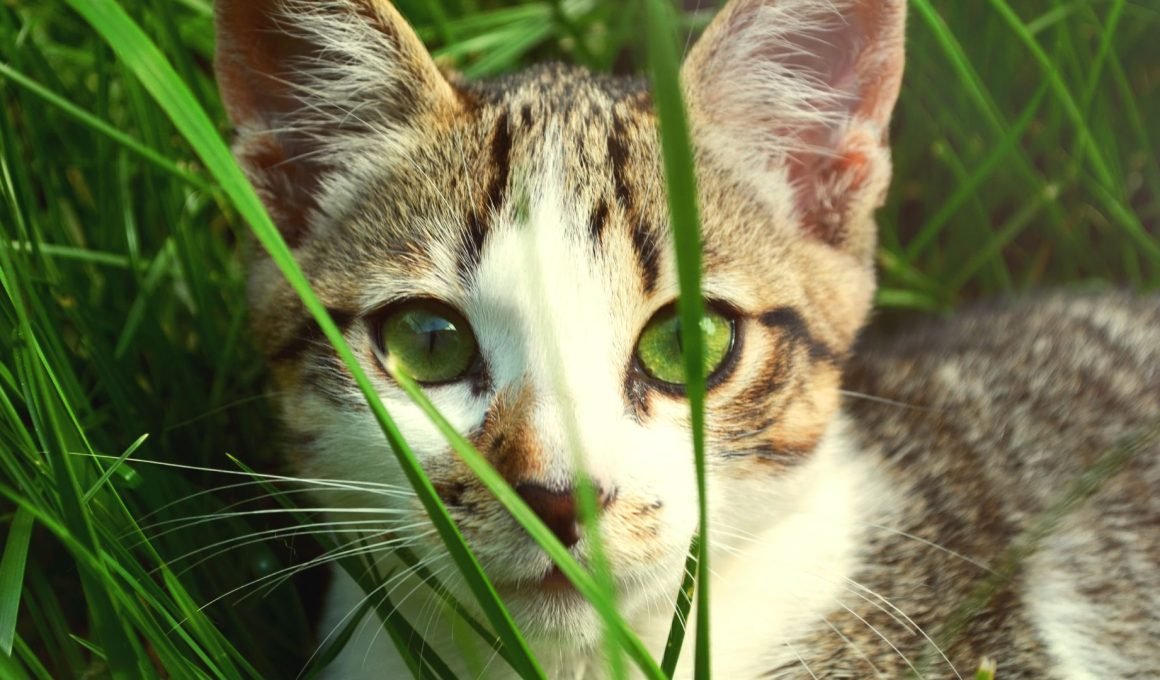In exploring the question of whether cats are considered evil in the Bible, it is important to delve into the cultural and historical context of ancient times.
Cats, while not prominently mentioned in the Bible, have been associated with various beliefs and superstitions throughout history.
This exploration aims to uncover any references or interpretations that might suggest a negative portrayal of cats in biblical texts.
Are Cats Evil in the Bible
In the Bible, cats are not specifically mentioned as evil creatures. The text primarily focuses on the behavior of humans and certain animals with moral teachings rather than assigning moral characteristics to cats or other animals.
However, here are 9 theological perspectives.
1. Lack of Direct Mention
Biblical Absence
Cats are notably absent from direct mention in the Bible. Unlike animals such as sheep, lions, and eagles, which have clear symbolic meanings, cats do not have a defined role or representation in biblical scripture. Sheep, for instance, symbolizes purity and the faithful followers of God (John 10:11), while lions represent both Christ, as the “Lion of Judah” (Revelation 5:5), and Satan, as a “roaring lion” seeking to devour (1 Peter 5:8). Eagles symbolize strength and divine protection (Isaiah 40:31).
The absence of cats from these symbolic roles means there is no direct biblical basis for considering cats as inherently good or evil. This suggests that any theological stance on cats is likely derived from cultural interpretations and not from the Bible itself. Consequently, any perceived moral attributes of cats would come from historical or cultural contexts rather than from scriptural doctrine.
2. Ancient Cultural Influences
Egyptian Reverence
In ancient Egypt, cats held a significant and revered position in society. They were closely associated with the goddess Bastet, who was depicted as having the head of a lioness or a domestic cat. Bastet was considered a protective deity, symbolizing home, fertility, and childbirth. Cats were often kept in households as protectors against vermin and were sometimes even mummified and buried with their owners as a sign of respect and reverence.
Given the Bible’s critical stance on Egyptian polytheism and idol worship, as seen in the story of the golden calf in Exodus 32:1-4, some theologians speculate that cats might be indirectly associated with pagan practices. The Israelites were forbidden from adopting the religious practices of surrounding nations, and this prohibition could extend to the reverence of animals like cats in Egyptian culture.
However, it is important to note that this connection is an inference rather than a direct biblical condemnation of cats. The Bible does not explicitly associate cats with evil or paganism. The Egyptian reverence for cats is a cultural context that some may use to interpret biblical views on cats, but it is not a definitive scriptural statement. Therefore, while ancient cultural influences might inform our understanding, they do not provide a clear biblical position on the moral nature of cats.
3. Symbolism of Cats in Other Cultures
Medieval Europe
During the Middle Ages in Europe, cats, particularly black cats, were often associated with witchcraft, evil spirits, and bad luck. This association stemmed from superstitions and fear of the unknown, which were prevalent in medieval society. Cats were thought to be familiars of witches, and their nocturnal nature, stealth, and perceived aloofness contributed to their mysterious and sometimes sinister reputation.
These cultural beliefs influenced Christian interpretations and superstitions about cats. For instance, Pope Gregory IX issued a papal bull in 1233 that linked cats to heretical practices, further entrenching the negative perception of cats in European culture.
However, it is crucial to recognize that these views are not rooted in biblical doctrine but rather in historical and cultural developments. The Bible itself does not attribute any inherent evil to cats.
4. God’s Creation
All Creatures Good
According to Genesis 1:31, after creating the world and all living creatures, God saw everything He had made and declared it very good. This inclusive statement encompasses all animals, including cats, implying that they are part of God’s good creation.
From a theological perspective, this declaration signifies that all creatures, including cats, are inherently good as they are products of God’s creative work. Any negative attributes ascribed to cats would thus be a result of human cultural interpretations rather than divine intent. This viewpoint reinforces the idea that cats, like all other animals, are to be valued and appreciated as part of the natural world that God deemed good.
5. Allegorical Interpretations
Lions and the House Cat
While domestic cats are not specifically mentioned in the Bible, lions, which belong to the same family, are frequently referenced. Lions serve as powerful symbols in Scripture, representing both good and evil. Christ is referred to as the “Lion of Judah” (Revelation 5:5), symbolizing strength, majesty, and divine authority. In contrast, Satan is described as a “roaring lion” seeking whom he may devour (1 Peter 5:8), symbolizing danger, aggression, and predatory behavior.
This duality in symbolism suggests that allegorical interpretations of cats can vary based on context. Just as lions can symbolize both positive and negative qualities, domestic cats could be seen as neutral, their significance and symbolism depending on the circumstances and perspectives applied to them.
6. Ethical Treatment of Animals
Biblical Mandate
The Bible advocates for the ethical treatment of animals, emphasizing humanity’s responsibility to care for God’s creation. Proverbs 12:10 states, “The righteous care for the needs of their animals, but the kindest acts of the wicked are cruel.” This verse highlights the importance of compassion and stewardship towards all animals, including cats.
Jesus also taught about the value of sparrows in Matthew 10:29-31, illustrating God’s care for even the smallest of creatures. This teaching extends to all animals, suggesting that cats, too, are deserving of humane treatment and kindness as part of God’s creation.
7. Cats in Apocryphal Texts
Non-Canonical References
While cats are not mentioned in the canonical books of the Bible, they do appear in some apocryphal and historical texts. For instance, in the apocryphal book of Baruch, there is a brief mention of cats in the context of idols and their inability to move or act, emphasizing the impotence of idols rather than making a statement about cats themselves.
These references, though not part of the biblical canon, provide additional cultural context and indicate that cats were known in biblical times, even if not prominently featured in Scripture. They highlight the broader cultural landscape in which biblical texts were written.
8. Modern Interpretations
Cultural Shifts
In contemporary times, cats are often viewed positively as pets and companions. Modern interpretations of cats as independent, affectionate, and playful animals contrast sharply with historical superstitions. This shift reflects broader changes in societal attitudes toward animals and emphasizes the evolving nature of cultural perceptions.
For modern Christians, understanding these cultural shifts can help in reinterpreting the roles and symbolism of animals in a way that aligns with contemporary values and biblical teachings on stewardship and compassion.
9. Personal and Spiritual Reflection
Individual Perspectives
Ultimately, the question of whether cats are evil in the Bible is less about scriptural evidence and more about personal and cultural interpretation. Believers are encouraged to reflect on the broader biblical principles of creation, stewardship, and compassion when forming their views on cats and other animals.
By focusing on these principles, individuals can appreciate the role of cats as part of God’s creation and respond with kindness and care, aligning their attitudes with the teachings of Scripture.
Conclusion
While the Bible does not explicitly label cats as evil, historical interpretations and cultural beliefs have occasionally portrayed them in negative light. The absence of direct references to cats in biblical narratives leaves room for varied interpretations.
Ultimately, understanding the context in which these beliefs arose helps clarify the perception of cats within biblical and historical contexts.







